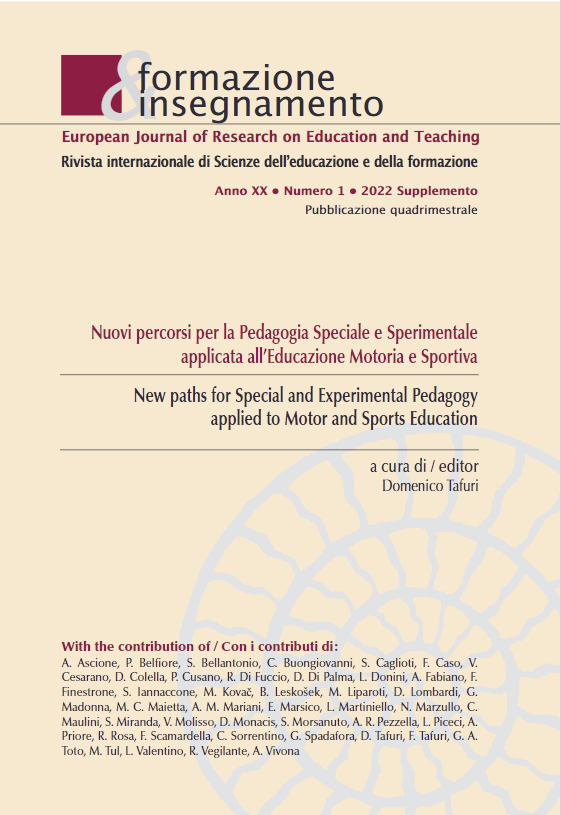Exergames for the development of executive function in children with Autism Spectrum Disorders: A systematic review
DOI:
https://doi.org/10.7346/-feis-XX-01-22_13Keywords:
Autism spectrum disorders, Executive function, Motor development, Exergames, Didactics-based evidenceAbstract
This systematic review of the literature aims to assess the effects of Exergames on executive functions in children with Autistic Spectrum Disorders to (a) highlight and infer possible didactic and methodological implications for teachers and (b) draw up inclusive and adapted physical activity programmes involving the use of technologies. The bibliographic search has previewed, using the model PRISMA, the consultation of the following databases: SPORT Discuss, Pubmed, Scopus and Web of Science. The results showed the general improvement of executive functions – attention, working memory, inhibitory control and cognitive flexibility – motor performance – muscle strength, reaction speed and coordination, with improvement of the fine motility of the limbs – and the reduction of repetitive and involuntary behaviors. Future research could include medium to long-term studies to assess the effectiveness of Exergames-based intervention protocols on executive functions, and the possible impacts on the general health status and quality of life in children and adolescents with Autism Spectrum Disorders, so as to design specific educational interventions and orient health welfare policies.
Downloads
Published
How to Cite
Issue
Section
License
Copyright (c) 2022 Pensa MultiMedia

This work is licensed under a Creative Commons Attribution 4.0 International License.
Formazione & insegnamento is distributed under Attribution 4.0 International (CC BY 4.0).
For further details, please refer to our Repository & Archiving Policy, as well as our Copyright & Licensing Terms.





